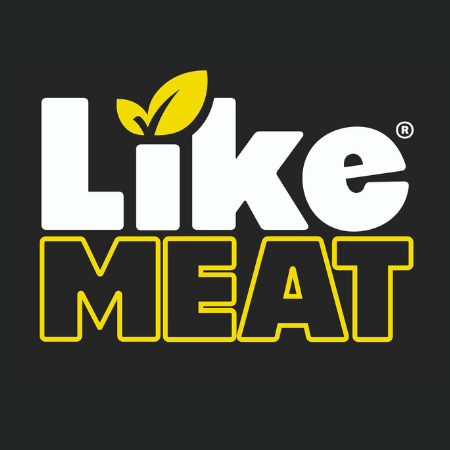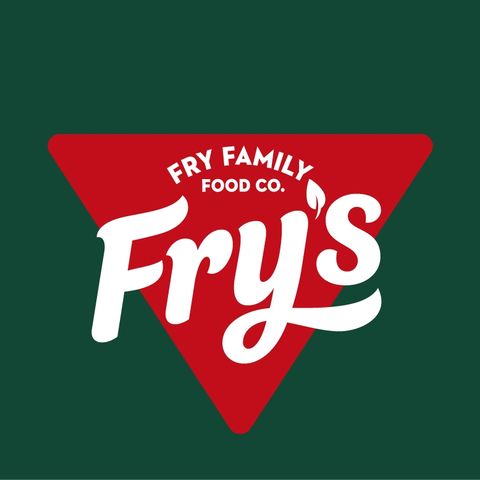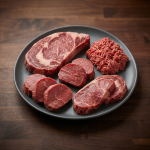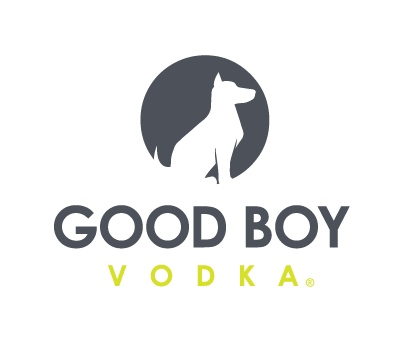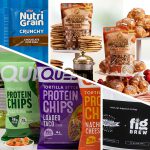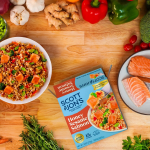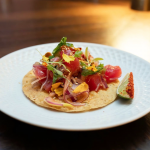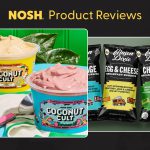LiveKindly Seeks to Make Plant-Based Eating “The New Norm” As It Grows Global Presence
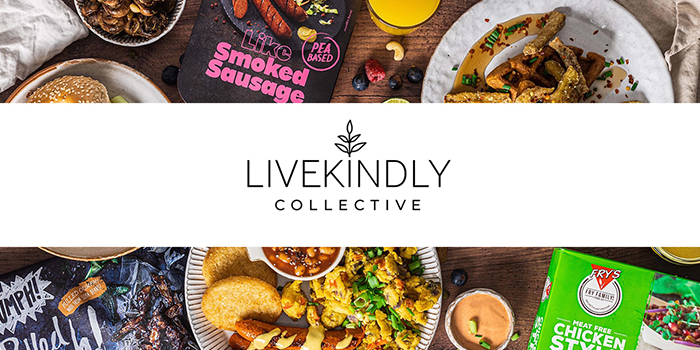
LiveKindly Collective is on a mission to make plant-based eating “the new norm” globally. Aiming to help consumers seamlessly swap out traditional animal products, the company has amassed a portfolio of four plant-based meat brands sold in over 40 countries. It’s an aggressive plan, but the company is quickly gaining momentum, raising $535 million in its first year and finding a sweet spot between multi-category consumer goods giants and smaller start-ups by creating a global company hyper-focused on the plant-based meat segment.
The company, which debuted as Foods United in 2019, rebranded as LiveKindly Collective in March 2020 after acquiring digital media platform LiveKindly Media. The company has established a portfolio of international plant-based meat brands through the acquisition of Oumph! (Sweden), The Fry Family Food Co. (South Africa), Like Meat (Germany), and England’s No Meat, and is now making a push into the U.S. starting with Fry’s and Like Meat.
According to CMO Mick Van Ettinger, LiveKindly looks to make a “big impact” by relying on a variety of perspectives, from founders and entrepreneurs to former industry executives. Many members of LiveKindly’s executive team are alum of CPG giants: CEO Kees Krythoff was previously President, North America at Unilever, Van Ettinger served as EVP of beverages at Unilever until March 2020, and CFO David Knopf was the former CFO of Kraft Heinz. Van Ettinger said that this experience, combined with a start-up mentality from the team developing its plant-based meat brands, along with strategic partnerships with producers, distributors and seed growers, has helped the company reach a wide swath of consumers globally.
“Founders know how to build businesses, then the entrepreneurs know how to build them to 10, 20, 30, 50 million,” Van Ettinger said. “And then people that have worked for bigger companies know how to run different brands, different categories, and how to roll them out across the world. If you put that together, that’s where the magic happens.”
LiveKindly believes that plant-based meat alone has the potential to be a $400 billion to $500 billion industry, Van Ettinger said. That scope means the group can focus on this one segment long term rather than expanding into adjacent categories like dairy alternatives as many other companies have. While several of its brands do offer beef or seafood alternative products, Van Ettinger said its largest focus is chicken alternatives, a meat that is more widely consumed worldwide than beef. It also has not seen the same level of competition, with buzzy plant-based brands like Beyond Meat in the U.S. sticking to beef alternatives.
Within this subsegment, Van Ettinger said the company has established a “double pivot” plan to disrupt the poultry industry and the plant-based protein industry itself, first by offering chicken alternatives that mimic the taste and texture of meat-based chicken, and second by formulating these products with clean labels, using ingredients that are “kitchen available.”
The goal is to offer a wide array of chicken alternatives, from patties and nuggets to strips, in order to ensure that consumers won’t have to change their daily habits or alter their favorite recipes beyond switching out an animal-based product for a similar plant-based option.
“If we really want to excite people and help them in their journey to a plant-based lifestyle, we need to meet their needs,” he said. “And it’s not so much that they need to change their whole life. How can we help them to actually more or less keep their life the same?”
When evaluating potential acquisitions, Van Ettinger said its first criteria is mission alignment, looking for brands with passion for the plant-based lifestyle. Then, it considers what brands can offer the company from a geographic or capability perspective, as well as what new consumers it could help them reach. Van Ettinger said the company does not have a preference for size or age of companies and while it has yet to acquire any North American brands, it is open to that possibility in the future.
As it grows its portfolio, Van Ettinger said the executive team’s experience at food giants like Unilever and Kraft Heinz has been an asset as it acquires multiple brands with similar offerings and works to position them differently in the category.
“In many of the more established categories, you always end up with multiple brands, because there are different positionings possible in a category,” he said. “And those positionings are possible because people are different, and these people are looking for different products and therefore there needs to be different brands that give them those solutions.”
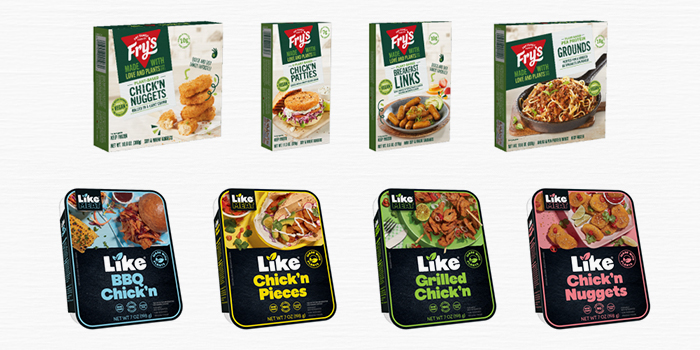
Of the company’s four food brands, Fry’s and Like Meat are currently sold in the U.S., launching in Sprouts Farmers Market last month, and the company also plans to roll out Oumph! and No Meat in the U.S. The U.S. strategy has been to focus on introducing brands that target different shoppers, said LiveKindly marketing director Emily Klooster, who is leading the brands’ U.S. rollout. For example, Fry’s is currently sold in frozen, while Like Meat is merchandised in the meat department alongside traditional chicken. Furthermore, the brands help the company reach two different consumer sets: Fry’s is a more family-oriented brand, while Like Meat appeals to a younger demographic.
While the $1.4 billion U.S. plant-based meat market has already become increasingly crowded, with only more products expected, Kooster noted that the category is still nascent. In fact, it has “barely scratched the surface,” in American grocery stores beyond plant-based burgers, she noted.
“Americans love their burgers, but they don’t exist just on burgers, of course. There’s lots of other meal occasions to go after. We believe that we can grow this market by really bringing plant-based alternatives into American kitchens one meal at a time [through] recipes that people are familiar with that they already love, and making simple swaps.”
As brands like Morningstar Farms’ Incogmeato, and startups like Alpha Foods, Daring and Simulate contend for shelf space in the plant-based chicken set, Van Ettinger said the company’s real competition continues to be traditional animal agriculture.
“All the plant-based brands that are out there, they’re all colleagues,” Van Ettinger said. “We’re all on the same mission of making plant-based living the new lifestyle. So for us, the only real competition that we have is the industry that is using animals to feed humans and that’s what we want to compete with.”
